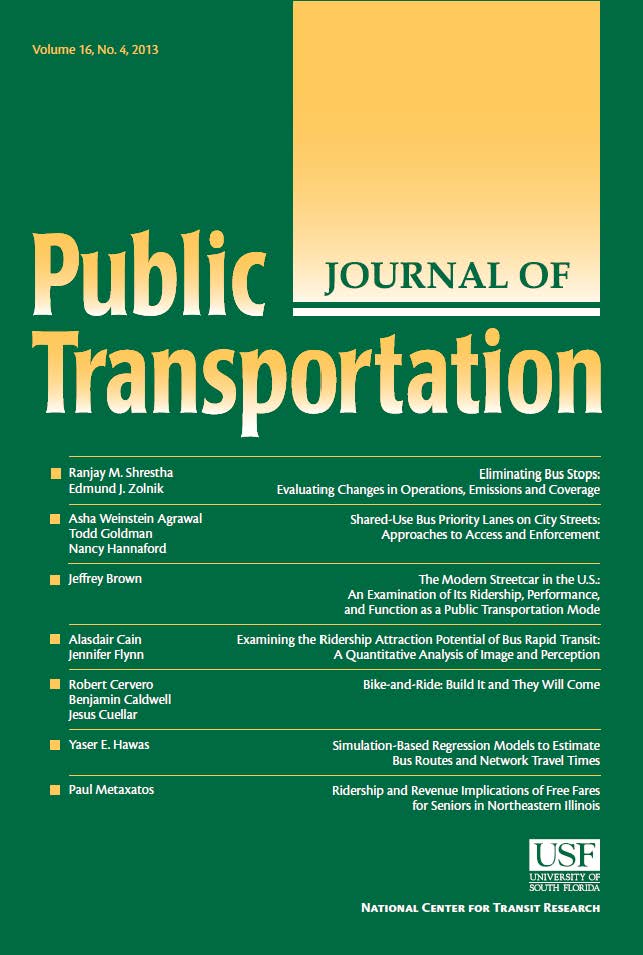Exploring antecedents of passengers’ behavioral intentions toward autonomous buses: A decomposed planning behavior approach
IF 2
4区 工程技术
Q3 TRANSPORTATION
引用次数: 0
Abstract
The increasing prominence of autonomous buses in metropolitan transportation has sparked considerable interest. However, the absence of a comprehensive theoretical framework hinders the systematic exploration of factors influencing passengers’ behavioral intentions regarding autonomous buses. This study addresses this gap by employing the decomposed planning behavior theory to investigate the antecedents of passengers’ behavioral intentions. Additionally, the study examines the impact of travel anxiety and perceived risk on passengers’ attitudes. Data were collected through a questionnaire survey, and structural equation modeling was utilized to rigorously test the research model. The findings reveal that purchase intention is positively influenced by novelty seeking, subjective norm, and perceived behavioral control, while being negatively impacted by travel anxiety. Conversely, travel anxiety is negatively influenced by novelty seeking but positively affected by perceived risk. Moreover, interpersonal influence positively affects subjective norm, and self-efficacy has a positive influence on perceived behavioral control. This study offers valuable insights for current and potential bus operators and government entities seeking to advance the promotion of autonomous buses in metropolitan areas.
乘客对自动驾驶巴士行为意向的前因:一种分解的计划行为方法
无人驾驶公交车在都市交通中的日益突出引起了人们的极大兴趣。然而,缺乏全面的理论框架,阻碍了对自动驾驶公交车乘客行为意向影响因素的系统探索。本研究采用分解的计划行为理论来研究乘客行为意图的前因,以弥补这一空白。此外,该研究还调查了旅行焦虑和感知风险对乘客态度的影响。通过问卷调查收集数据,运用结构方程模型对研究模型进行严格检验。研究发现,新奇追求、主观规范和感知行为控制正向影响旅游游客的购买意愿,而旅行焦虑对旅游游客的购买意愿有负向影响。相反,旅行焦虑受新奇追求的负向影响,而受感知风险的正向影响。人际影响正向影响主观规范,自我效能感正向影响感知行为控制。这项研究为当前和潜在的公交运营商和政府机构寻求在大都市地区推广自动驾驶公交车提供了有价值的见解。
本文章由计算机程序翻译,如有差异,请以英文原文为准。
求助全文
约1分钟内获得全文
求助全文
来源期刊

Journal of Public Transportation
TRANSPORTATION-
CiteScore
6.40
自引率
0.00%
发文量
29
审稿时长
26 days
期刊介绍:
The Journal of Public Transportation, affiliated with the Center for Urban Transportation Research, is an international peer-reviewed open access journal focused on various forms of public transportation. It publishes original research from diverse academic disciplines, including engineering, economics, planning, and policy, emphasizing innovative solutions to transportation challenges. Content covers mobility services available to the general public, such as line-based services and shared fleets, offering insights beneficial to passengers, agencies, service providers, and communities.
 求助内容:
求助内容: 应助结果提醒方式:
应助结果提醒方式:


